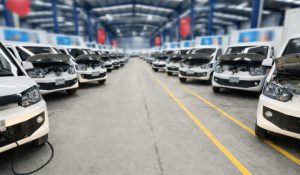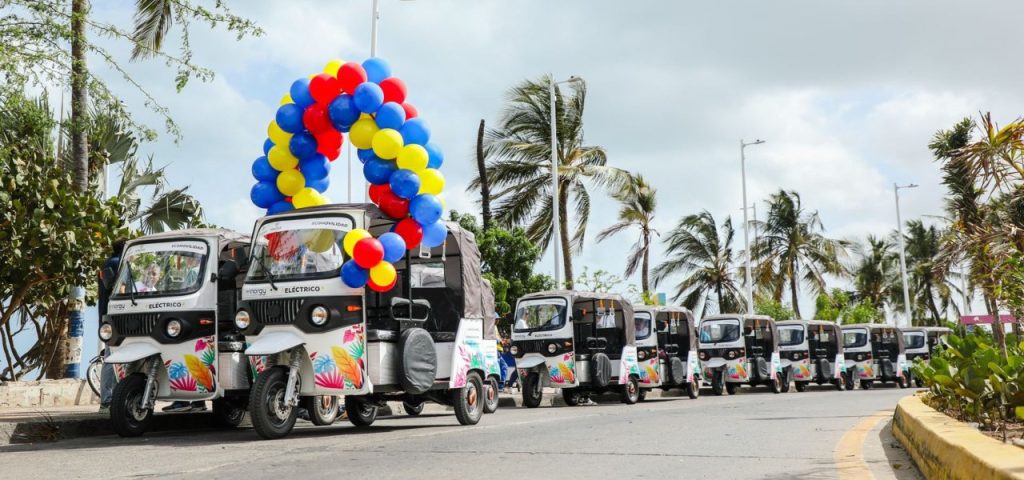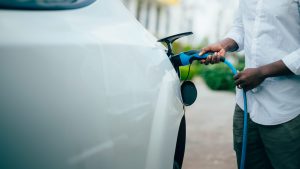
La Guajira Promotes Sustainable Tourism with 29 Electric Vehicles

Colombia’s government has delivered 29 electric vehicles in La Guajira as part of the “Sustainable Ecomobility” project, which aims to foster sustainable tourism, improve local mobility, and reduce environmental impact.
The initiative is led by the Ministry of Mines and Energy and executed by the Non-Conventional Energy and Efficient Energy Management Fund (FENOGE), with support from the Ministry of Commerce, Industry and Tourism and Fontur.
Solar-Powered Electric Mobility
This third deployment under the project includes electric tuk-tuks in La Guajira, distributed between Riohacha (18 units) and Dibulla (11 units).
Three solar charging stations have been installed in strategic locations: Riohacha’s historic center, Camarones, and Palomino.
These stations feature solar panels with capacities ranging from 12 to 20 kilowatt-peak, ensuring clean and autonomous energy supply.
Tourism, Development, and Community Employment
The electric vehicles will operate on two tourist circuits. In Riohacha, the route connects key landmarks such as the seafront, the pier, and the city’s historic center.
In Dibulla, the circuit is focused on Palomino, covering the river, beach, and ecological trails. Two local associations—ASOTUK RIO and ASOTUK DI—will operate the fleet, ensuring community ownership and long-term sustainability.
To support local development, driver training focused on electric mobility, energy efficiency, and environmental awareness was conducted.
The project also creates jobs, strengthens ecotourism, and builds charging infrastructure for electric mobility in Colombia.

A Vision for a Solar Colombia
Minister Edwin Palma emphasized that this initiative is proof of the country’s progress toward becoming a Solar Colombia.
FENOGE director Ángela Álvarez noted that La Guajira’s strong solar radiation and tourism potential make it a prime example of a just energy transition.
With this step forward, electric vehicles in La Guajira become a concrete solution for improving the quality of life in vulnerable communities and promoting a greener, more inclusive development model.





